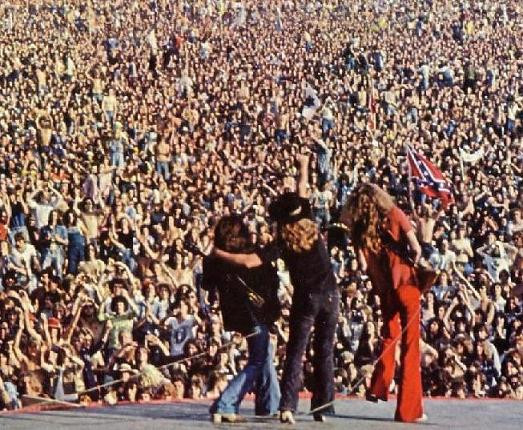Music. It’s more than just background noise; it’s the soundtrack to our lives. Certain songs act like invisible threads, tethering us to moments in time. Like those old amplifier cords that gave musicians some room to move on stage but always kept them connected, music pulls us back to memories, not completely disconnecting us from the present, but allowing us to revisit the past. You might hear a song years later, miles away, but within the first few notes, you’re instantly transported. Suddenly, you’re back in that specific time, surrounded by the feelings and experiences that were imprinted alongside the music, creating a permanent link, a personal soundtrack.
Just last night, I found myself at our local pub, celebrating a dear friend, Kate, turning the big 5-0. It was a lively affair, complete with live music and delicious food, and I enjoyed catching up with friends. As the evening drew to a close, I was putting on my coat, giving my husband that “ready to leave when you are” look, when it happened. The opening chords of that song filled the air, a song that, for me, is tied to one very specific, very vivid memory.
 Lynyrd Skynyrd Knebworth performance, capturing the raw energy and passion of southern rock in 1976.
Lynyrd Skynyrd Knebworth performance, capturing the raw energy and passion of southern rock in 1976.
Suddenly, I was fifteen again, immersed in the raw, electrifying energy of a Lynyrd Skynyrd concert in the summer of 1976. Southern rock fans were a force of nature, and tonight, they didn’t want the show to end. I had scored a fantastic seat in the balcony’s center section, offering a perfect view of the stage and a sweeping panorama of the roaring crowd below. This wasn’t just any concert; it was one of three sold-out nights being recorded for their iconic live album, “One More From The Road.” The atmosphere was electric, charged by the band’s incredible performance and the audience’s fervent adoration. We, the fans, were making our voices heard, demanding one more song, another encore, that one essential tune to cap off the night.
My teenage voice was hoarse from shouting, and I was damp with sweat from dancing in place, lost in the collective rhythm. Though dancing solo in my spot, I was united with 4,677 other fans, all of us clapping, stomping, and chanting, a unified voice pleading for that final, unforgettable song. The anticipation hung thick in the air, palpable and exciting.
Then, the roar of the crowd intensified as Lynyrd Skynyrd retook the stage. Ronnie Van Zant, the band’s legendary frontman, stepped up to the microphone and asked that now-famous question, a question that has echoed through southern rock history: “What Song is it you wanna hear?” We were in the historic Fox Theatre in Atlanta, Georgia, a venue steeped in musical lore, and in that moment, we were about to become part of it. The response was instantaneous, an explosive wave of sound as the entire audience seemed to shout in unison, two words that resonated with every soul present:
“Free Bird!“
Back in the pub, decades later, as the musician played that timeless southern rock anthem, I closed my eyes, momentarily reliving that night at the Fox Theatre. For those precious minutes in 1976, nothing else seemed to matter except that song, that shared musical experience. Then, a funny thing happened. Towards the end of the song, my gaze drifted downwards, and I found myself looking at the musician’s shoes. Just ordinary shoes, nothing remarkable. Yet, I kept looking.
It wasn’t until the lyrics reached, “Lord, I can’t change…,” that the reason clicked. Ronnie Van Zant was famously barefoot on stage. I remembered reading somewhere that he did it because he wanted to feel the stage “burn.” It was a small detail, a quirky stage presence, but it was part of the Ronnie Van Zant legend, part of the Lynyrd Skynyrd mystique, and it was a detail that brought the memory even sharper into focus.
While I might not have been the stereotypical Confederate flag-waving, “Dixie”-loving southern rock devotee that some of my friends were, I had a deep appreciation for certain songs, and “Free Bird” was undeniably one of them. It was more than just a song; it was an epic, a statement, a journey.
Over the years, “Free Bird” has become somewhat of a cliché, a song title shouted out at concerts and events at completely inappropriate moments, often as a joke. I suspect many who yell it out have little to no understanding of its origins or the genuine passion behind the request. They do it because they saw someone else do it, got a laugh, and thought they’d try to replicate it.
But “Free Bird” deserves more respect than to be reduced to a cheap, attention-seeking gag. It’s a powerful song with a powerful history. And perhaps that’s the perspective of someone who was actually there, in that Atlanta theatre, when the question was asked, and had the chance to be part of the resounding answer.
Thirty-five years later, that memory, that moment, still holds a special power. It reminds me of a time when shouting “Free Bird” wasn’t a punchline, but a heartfelt plea for a song that meant, and still means, so much to so many. It was, and remains, a testament to the enduring power of music to connect us to moments, memories, and each other.
